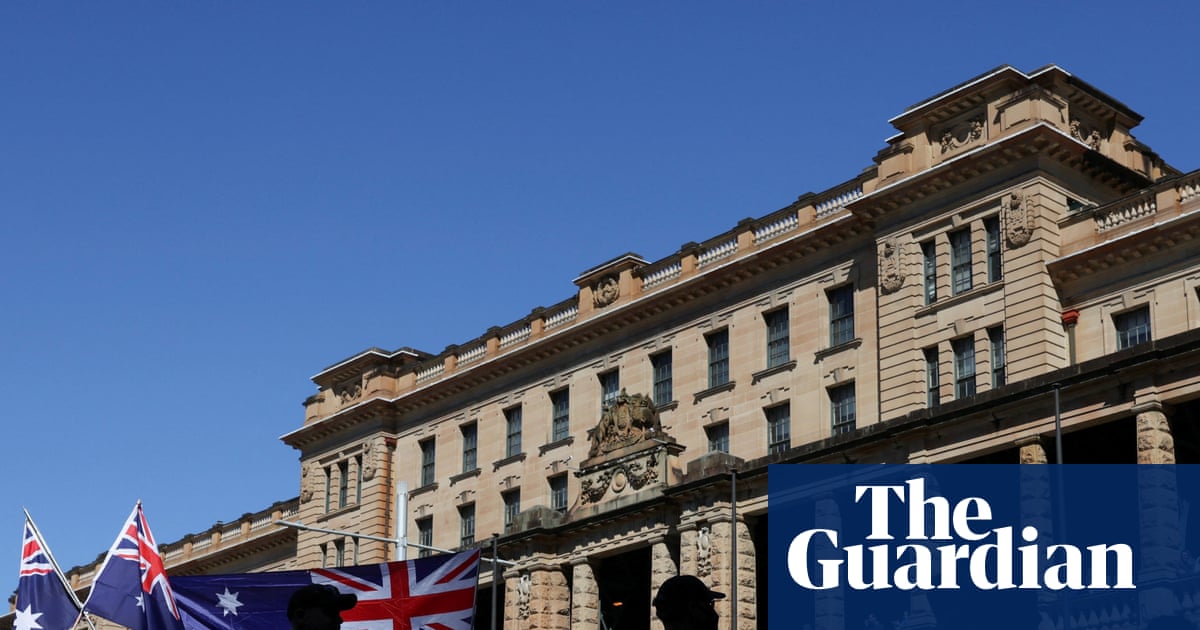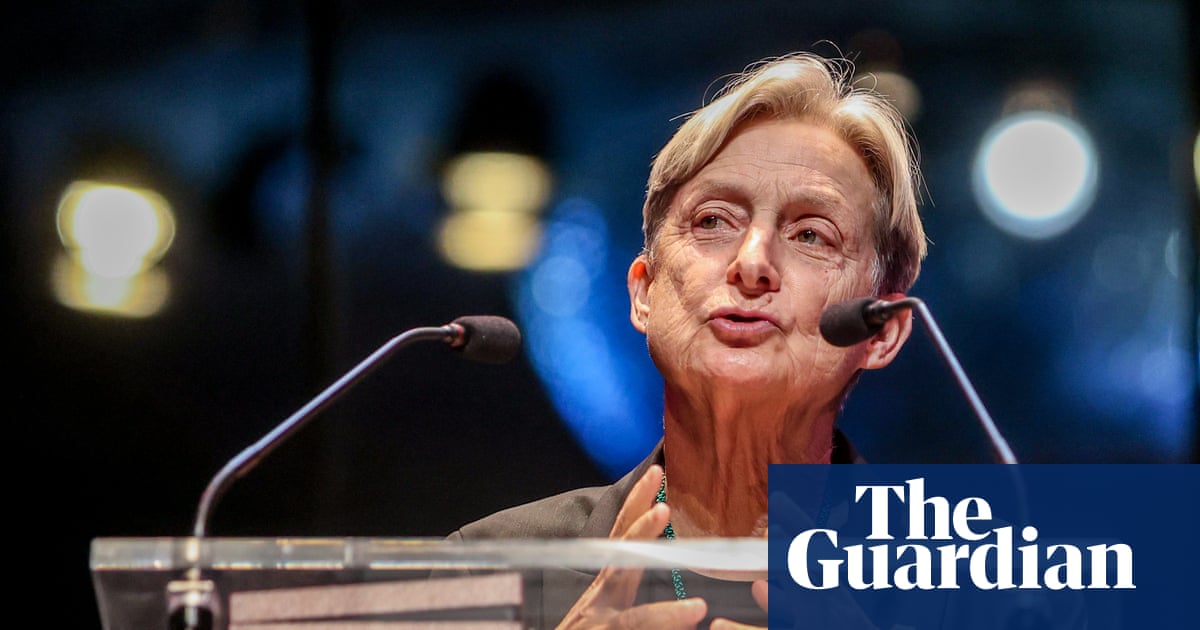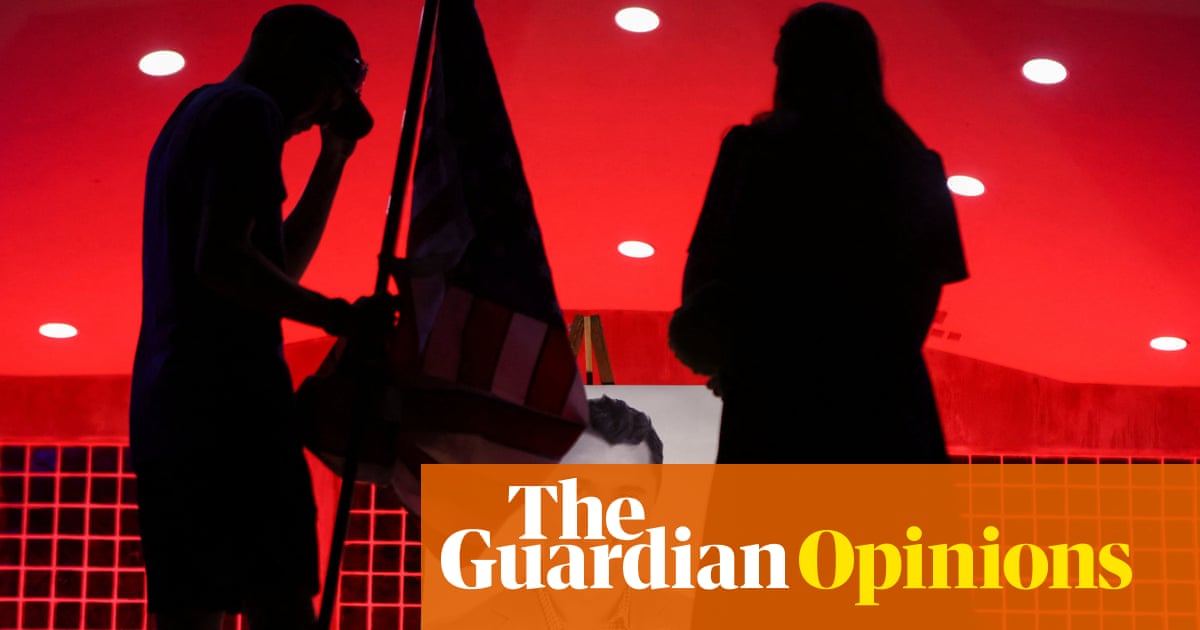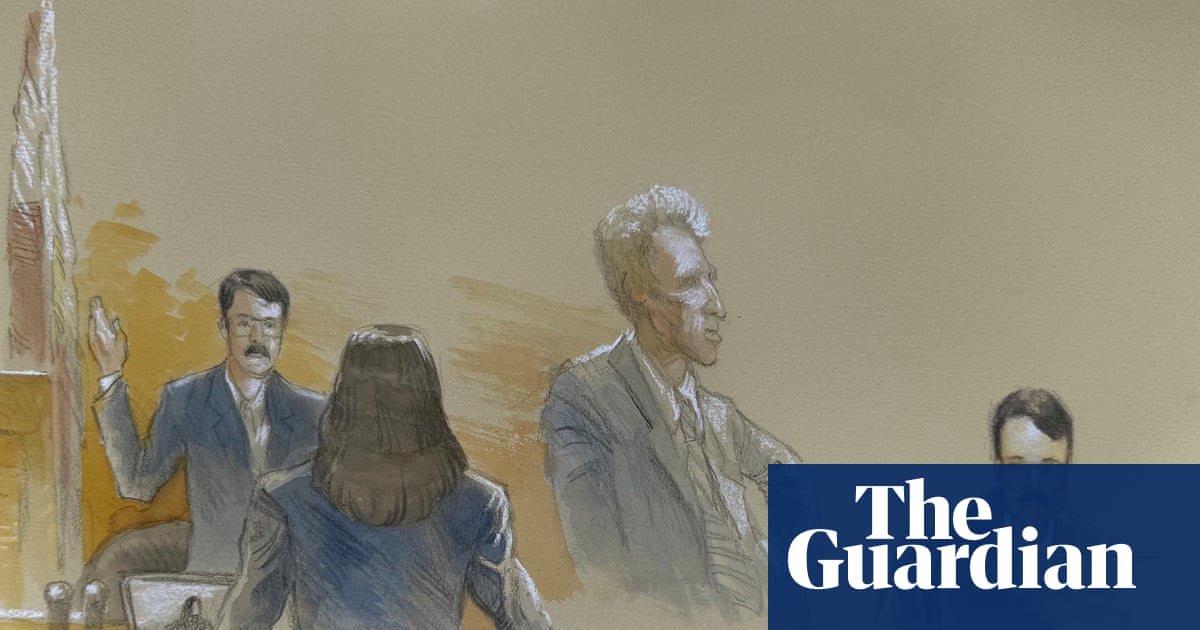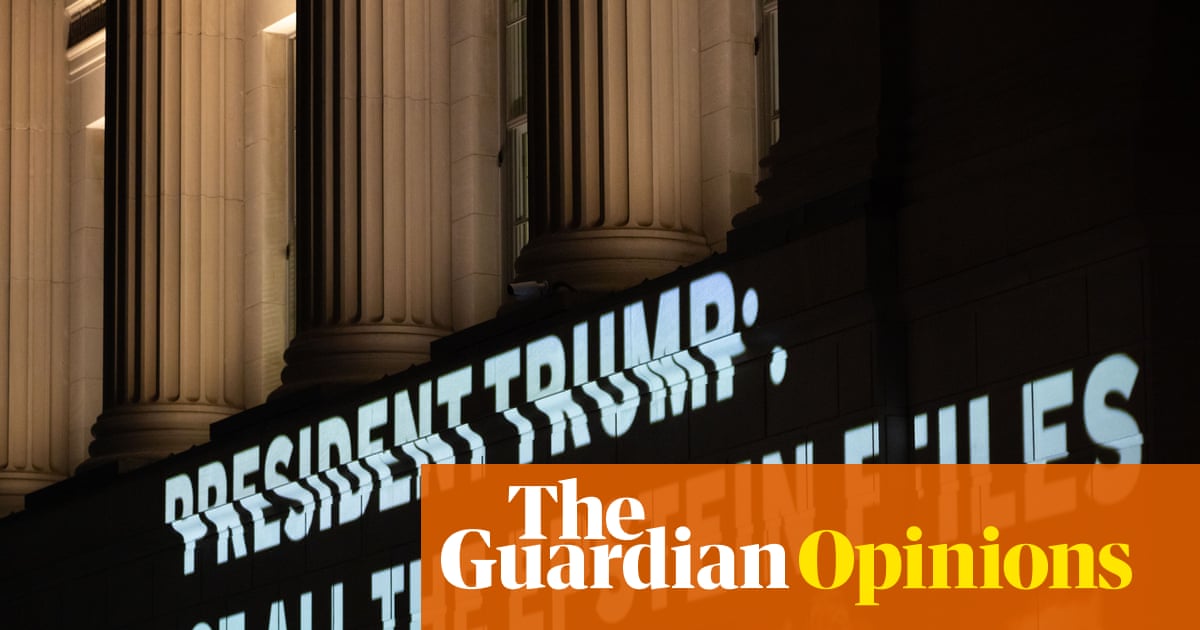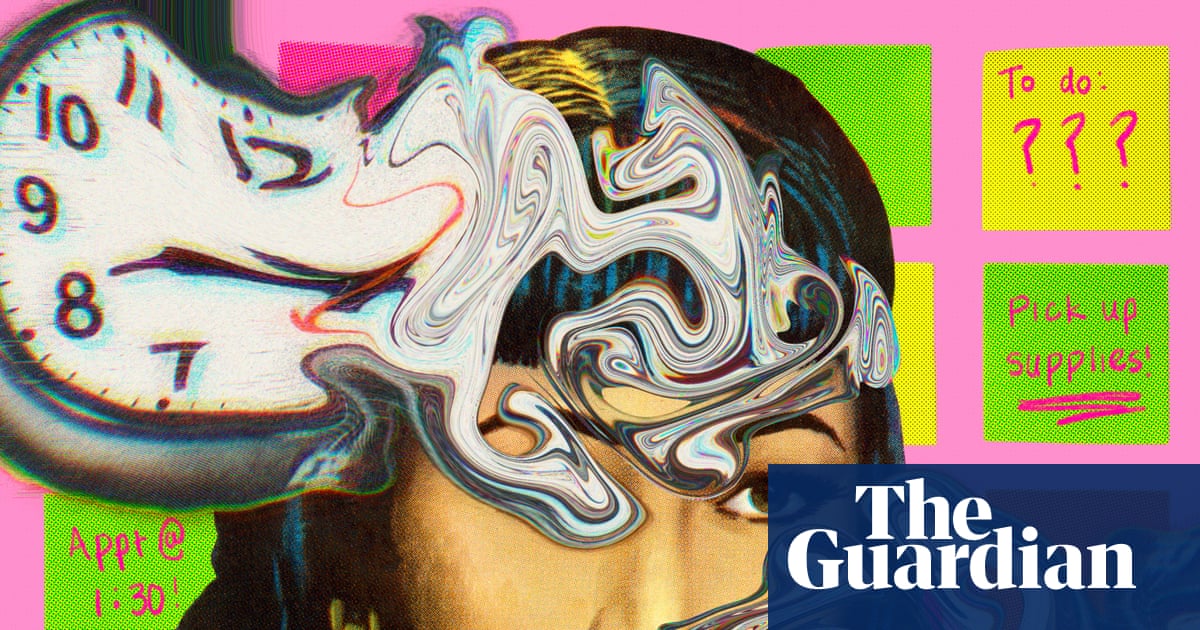Ancient Greek dramas have long thrived on the West End stage. In recent times: Sophie Okonedo’s electrifying Medea, Brie Larson’s high-wire Elektra and Mark Strong’s smoothly political Oedipus. But the likes of Hades and Eurydice are less often found belting out big numbers alongside a dancing ensemble. Until now, it would seem. Mythological musicals are on the rise: Disney’s Hercules opens this month and Anaïs Mitchell’s Hadestown is in its second year at the Lyric while The Lightning Thief: The Percy Jackson Musical is going on tour this summer.
“Greek theatre has influenced every facet of our lives, from athletics to religion,” says Cedric Neal, who plays Hermes in Hadestown. “What better than for it to be translated to the stage with music, choreography and dance?” Neal has a good point: Greek tragedies, in their original incarnations, were traditionally performed with dance and music, so it is fitting for them to take the guise of full-blown modern musical theatre.
Hadestown revolves around two ancient tales: Persephone’s abduction by Hades and the doomed romance between Eurydice, who ventures into Hades’s underworld, and Orpheus, who tries to get her out. Hermes is the show’s narrator, delivering some of the plot through songs incorporating gospel, jazz, folk, bluegrass and soul.
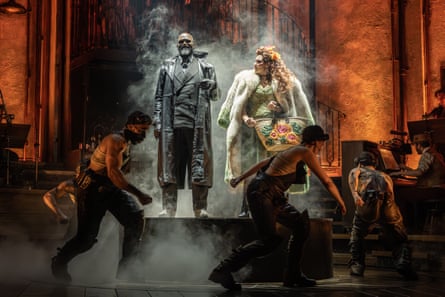
Music is the purest form of telling a story, Neal says, as it touches heart and soul: “That’s what’s so effective, and affecting, about it.” He believes that these myths, set to music, reflect our lives back at us with an added emotional catch. Neal plays Hermes as pansexual: “Hadestown deals with how complex love can be and what we are willing to do [for it], no matter what the government or church or your parents are saying. The story we are telling reminds us that love will conquer all.”
The rock musical The Lightning Thief is another hit, currently at the Other Palace in London. Based on the bestselling Percy Jackson book series by Rick Riordan, the story is certainly ancient – of Poseidon’s half-god son and Zeus’s stolen lightning bolt. But it is also about teenagers living in today’s world, feeling like gawky outsiders.
Like Hadestown, it ran both off and on Broadway. This new production is directed by Lizzi Gee, who thinks that musical versions of these ancient stories “can take you even more into fantasy lands” and that they allow you to connect through the heightened emotions of the song and dance.

As its choreographer as well, she had no difficulty in creating movement around these mythic characters. “I always want to be telling the story through dance and these songs are so narratively driven.” She had gone to producer Paul Taylor-Mills about another idea before he suggested this to her. “He said go away, listen to the soundtrack, and think if it’s something you’d like to do. The second I played the opening number I thought ‘I’m in’. Every song is narrative so I could immediately picture it all, because of the imagery through the songs. It was really clear to me how I would stage it.”
The show features Percy’s adolescent posse of “half-bloods” (part human, part Greek god) at summer camp. “For me, it’s trying to portray the kids at Camp Half Blood as people who could represent the youth of today, so that they see themselves on that stage and see their stories being told – Percy with his ADHD and dyslexia … I feel like I wanted to say: ‘These are real people and this is our connection with their stories.’”
Its stage design, by Ryan Dawson Laight, does not conjure a traditionally ancient realm but one filled with electricity, water and sewage in the above, beyond and below worlds. Characters wear jeans and hoodies “but with something a little otherly to them …”, she says. What has been rewarding to experience is the impact it has had on audiences. “Teenagers who are maybe struggling with isolation or thinking about who they are and feeling different from other people … are so grateful for something they can connect with and connect to … What is remarkable is how many young boys come to watch the musical. It’s very much connecting to young masculinity.”
These mythic stories also offer a counterpoint to the “presentation” of ourselves that we so often get on social media, she feels. They offer an exploration of authentic identity and finding our true selves – that, in a way, is the purpose of the classic quests in ancient stories – and contemporary ones, too.

Hercules the Musical has been adapted from the 1997 Disney animation film, whose music was composed by Alan Menken with lyrics by David Zippel (both are involved in this Disney stage show). Mythological musicals in animated form are not an especially new-fangled idea: DreamWorks has transposed several ancient, biblical stories to screen, their dramas fuelled by music and song, such as Joseph: King of Dreams and The Prince of Egypt (both these stories have since been adapted for the stage).
Aspects of the story in Hercules have been reworked, although many of the loved songs are still there, say co-writers of the book, Robert Horn and Kwame Kwei-Armah. “We hope the audience goes ‘I know the music that was in the movie and now I’m going to accept this iteration …’,” says Kwei-Armah.
For Horn, the key question was how to adapt mythology “without losing the DNA of what it is” while making it relevant to contemporary society – just as in the case of The Lightning Thief for Gee. “It is a coming-of-age story, for me, but also a story about understanding where you fit in in the world and what your strength is.”
Kwei-Armah’s entry point to the myth was through the original story of Heracles, the divine Greek hero who later became known as Hercules in the Roman canon. “What I find interesting,” he says, “is how the story looks at the qualities that make you a god, the trials you have to go through in order to find out who we are, to find your tribe, to be accepted by the tribe you identify with and not just the tribe that is the dominant tribe. Part of the reason I responded to it so strongly when I was asked to join Robert and the team is that I felt it would be fun to investigate authenticity and the idea of being seen through ancient myth.”
While they stayed true to the original story on the whole, they have added some new characters. “We were given free rein, says Horn. “That said, there is a musical element to the movie, and certain songs that are iconic. You don’t want to lose those. Our job is to make those songs work organically even if we have to change the story. People are going to come to hear them.” Kwei-Armah concurs: “Go the Distance makes me cry every time that I hear it so there’s no way we would even think about trying to lose anything like that.”
What is so powerful about setting these old stories to music? “The fundamental thing behind a musical is the idea ‘oh no, I can’t say it so I must sing it’,” says Kwei-Armah. Horn adds: “These [mythic] stories are all just a little bit larger than life, so lend themselves organically to being musicalised.”
Myths also offer eternally relevant stories, their underlying meanings delivered in metaphorical form, says Kwei-Armah. “We love a metaphor and there’s nothing better than a singing metaphor … I think we like being able to look back and see our everlasting selves [in these myths]. That lends itself to a melody.”
-
Hercules is at Theatre Royal Drury Lane, London, from 11 June-28 March 2026. The Lightning Thief is at the Other Palace, London, until 15 June and then on tour from 15 August-1 November. Hadestown is at the Lyric theatre, London, until 15 February 2026

 3 months ago
43
3 months ago
43
